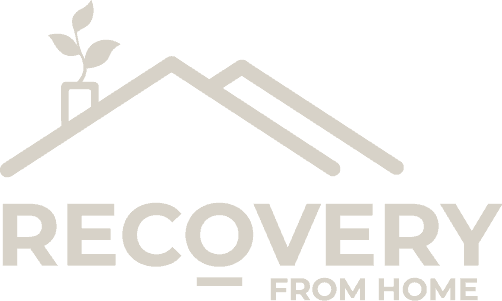UNDERSTANDING
COCAINE USE DISORDER
AND ADDICTION
On a biological level, cocaine prevents the reuptake of dopamine, serotonin and several other chemicals in the brain, meaning that they are not reduced and destroyed as they should once they have served their purpose. The effects of cocaine create euphoria for most who deal with cocaine abuse.
It is, therefore, understandable that people with underlying psychological problems like depression, bipolar disorder, ADD and ADHD are particularly vulnerable to its stimulant nature. And why so many become addicted to cocaine.
As a stimulant, cocaine can produce feelings of euphoria, increased energy, and confidence. However, it can also induce adverse effects such as anger, arrogance, and agitation. When snorted, the effects of cocaine typically take minutes to manifest, depending on its purity. The euphoric ‘buzz’ generally lasts 20-30 minutes, leading many users to seek repeated use for a prolonged effect.
Cocaine is a highly addictive drug due to the pleasant effects that cocaine produces. This is why it can be challenging to stop using it.
RECOGNISING COCAINE ADDICTION
Cocaine use disorder can present itself in several forms, and recognising it typically requires monitoring changes in behaviour, physical health, and mental state. Essential indicators to watch for include:
BEHAVIOURAL CHANGES
Increased Drug-Seeking: Persistent efforts to obtain and use cocaine, often prioritising it over other activities.
Frequent Absences: Regular unexplained absences from work, school, or social events.
Financial Problems: Spending significant amounts of money on cocaine leads to financial difficulties or unexplained expenses.
Secretive Behaviour: Hiding cocaine use or lying about drug-related activities.
PHYSICAL SYMPTOMS OF COCAINE USE
Nasal Damage: Noticeable damage to the nose, such as a deviated septum or frequent nosebleeds, from snorting cocaine.
Dilated Pupils: Enlarged pupils and increased heart rate, often noticeable during or after drug use.
Changes in Appearance: Rapid weight loss, poor personal hygiene, or neglect of appearance.
PHYSICAL SYMPTOMS
Nasal Damage: Noticeable damage to the nose, such as a deviated septum or frequent nosebleeds, from snorting cocaine.
Dilated Pupils: Enlarged pupils and increased heart rate, often noticeable during or after drug use.
Changes in Appearance: Rapid weight loss, poor personal hygiene, or neglect of appearance.
PSYCHOLOGICAL & EMOTIONAL CHANGES
Euphoria and Excitability: Experiencing intense euphoria, energy, or confidence followed by irritability or agitation.
Mood Swings: Frequent mood swings, including episodes of anxiety, paranoia, or depression.
Impaired Judgment: Poor decision-making and risky behaviours, such as unsafe driving or dangerous activities.
PSYCHOLOGICAL & EMOTIONAL CHANGES
Euphoria and Excitability: Experiencing intense feelings of euphoria, energy, or confidence followed by irritability or agitation.
Mood Swings: Frequent mood swings, including episodes of anxiety, paranoia, or depression.
Impaired Judgment: Poor decision-making and risky behaviors, such as unsafe driving or engaging in dangerous activities.
COCAINE WITHDRAWAL SYMPTOMS
Cravings: Intense cravings for cocaine when not using the drug.
Fatigue and Depression: Feeling unusually tired, depressed, or lacking motivation after the effects of cocaine wear off.
Sleep Disturbances: Insomnia or disrupted sleep patterns.
SIGNS OF TOLERANCE & DEPENDENCE
Increased Dosage: Needing to use larger amounts of cocaine to achieve the desired effect.
Neglect of Responsibilities: Failing to meet responsibilities at work, home, or in relationships due to cocaine use.
Continued Use Despite Consequences: Persisting in cocaine use despite experiencing negative impacts on health, relationships, or personal life.
LONG-TERM EFFECTS OF COCAINE ADDICTION
Psychologically, cocaine addiction can lead to a range of mental health issues. Individuals may experience mood swings, irritability, anxiety, and paranoia, especially during periods of cocaine withdrawal symptoms.
Cocaine addiction can also impair cognitive function, leading to problems with memory, attention, and decision-making. It is linked with other disorders, such as depression or anxiety.
The long-term effects of cocaine use can also damage the heart muscles and increase the risk of heart attack and stroke. Additionally, snorting cocaine can damage the nasal passages and septum, while smoking crack cocaine can cause respiratory problems and lung damage.
Repeated exposure to cocaine can lead to an overdose and even death due to the severe adverse effects on the brain’s function and the physical toll it puts on your body.
COCAINE OVERDOSE CAN CAUSE:
Anxiety, Paranoia, Restlessness, Tremors, Seizures, Abnormally high body temperature, High blood pressure, Abnormal heart rhythms, Death, brain haemorraging causing disabilities and paralysis (since you never know what is mixed or cut with it)
COCAINE SUBSTANCE ABUSE TREATMENT OPTIONS
There are various treatments for cocaine addiction available, whether you decide on an inpatient program or an outpatient program.
Treatment centres offer a multitude of options for chronic cocaine users.
Inpatient treatment requires that you take time away from your life to deal with your use of cocaine. This means addiction rehab.
Outpatient programs offer cocaine addiction treatment and rehab from the comfort of your own home. This type of treatment addresses the reasons for your repeated cocaine addiction and helps you find ways to deal with your addiction while you are in your everyday environment.
TREATMENT NEAR YOU – AT HOME! TALK ABOUT CONVENIENT!
Using 21st-century technology, our team of specialists can help get your addiction under control via online sessions. You can be anywhere in the country to get help for your substance abuse disorder. There is no need to be locked away in a rehab centre only to struggle with the natural world when you get out.
You can get over your addiction to cocaine.
are YOU Struggling with cocaine addiction?
Early recognition of cocaine addiction signs is vital for seeking timely professional help to achieve lasting recovery. If you or a loved one is struggling with these symptoms, Recovery From Home is here to support you. Our 23-day online cocaine detox program, priced at R24,500, is tailored to your unique needs, boasting a 3% relapse rate compared to 40-60% for inpatient programs. With personalized therapy, medical supervision, and discreet home-based care, we empower you to break free from addiction. Take the first step today—contact us via WhatsApp at +27 696 243 110 for a confidential consultation.
FAQ
Our Applications Cover Diverse Corporate Markets
Take the first step
Are you ready to make a change? Contact us today to learn how our at-home addiction program can help you or your loved one achieve lasting recovery.
Confidential & Individualised Addiction and Detox Treatment from Home. Fill out the form below, and we’ll get back to you within 24 hours











